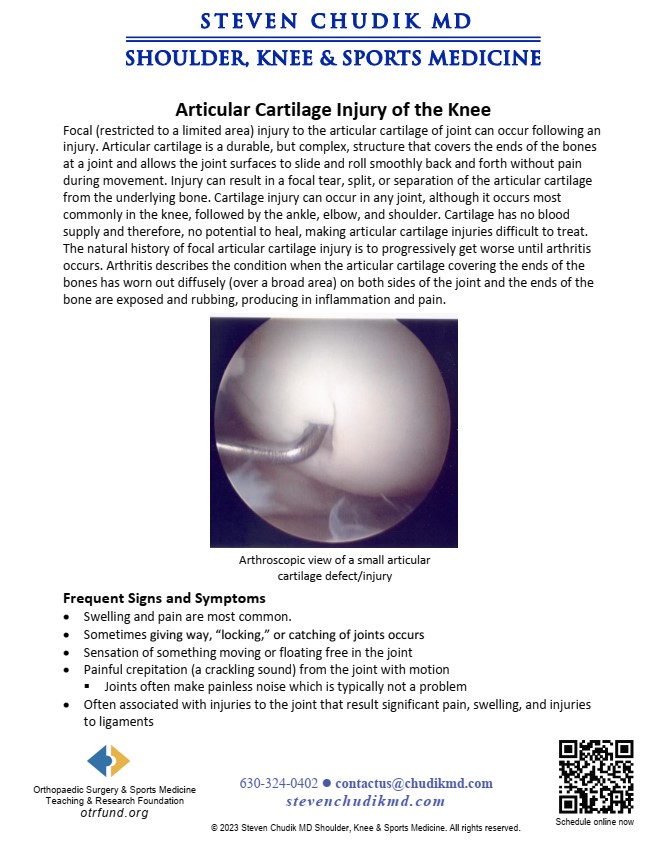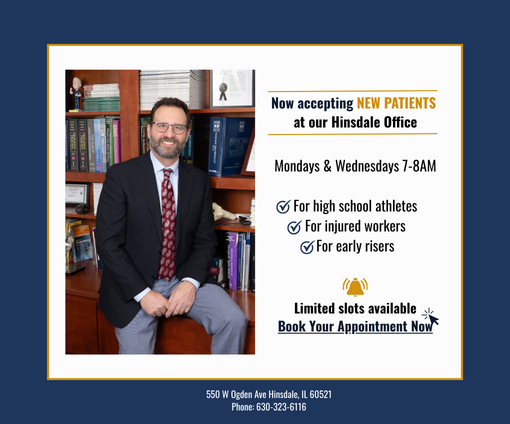 Because injuries are never planned, be prepared by bookmarking Dr. Steven Chudik's online scheduling tool today!
Because injuries are never planned, be prepared by bookmarking Dr. Steven Chudik's online scheduling tool today!
Home / Cartilage Tears
Focal (restricted to a limited area) injury to the articular cartilage of joint can occur following an injury. Articular cartilage is a durable, but complex, structure that covers the ends of the bones at a joint and allows the joint surfaces to slide and roll smoothly back and forth without pain during movement. Injury can result in a focal tear, split, or separation of the articular cartilage from the underlying bone. Cartilage injury can occur in any joint, although it occurs most
commonly in the knee, followed by the ankle, elbow, and shoulder. Cartilage has no blood supply and therefore, no potential to heal, making articular cartilage injuries difficult to treat. The natural history of focal articular cartilage injury is to progressively get worse until arthritis occurs. Arthritis describes the condition when the articular cartilage covering the ends of the bones has worn out diffusely (over a broad area) on both sides of the joint and the ends of the bone are exposed and rubbing, producing in inflammation and pain.

 Fractured, displaced humerus is no showstopper for Lewensohn
Fractured, displaced humerus is no showstopper for Lewensohn
Dr Steven Chudik founded OTRF in 2007 to keep people active and healthy through unbiased education and research. Click to learn about OTRF’s free programs, educational opportunities and ways to participate with the nonprofit foundation.
1010 Executive Ct, Suite 250
Westmont, Illinois 60559
Phone: 630-324-0402
Fax: 630-920-2382
(New Patients)
550 W Ogden Ave
Hinsdale, IL 60521
Phone: 630-323-6116
Fax: 630-920-2382
4700 Gilbert Ave, Suite 51
Western Springs, Illinois 60558
Phone: 630-324-0402
Fax: 630-920-2382

© 2025 © 2019 Copyright Steven Chudik MD, All Rights Reserved.

